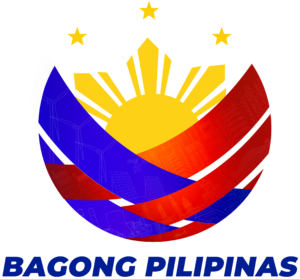TIMELESS LESSONS FROM RIZAL
by Ma. Cielito G. Reyno
In these times of crisis we Filipinos would do well to look back at the code of virtues Rizal abided by to help us put meaning to our own struggles for survival. Rizal embodied and realized the best of what the Filipino can be. His triumphs and struggles even against the certainty of failure inspired the Katipunaneros to launch the Revolution despite great odds, and realize Asia’s first independent Republic. And today, it is still Rizal that leads this generation to continue and perchance finish what he began: the formation of a nation where every Filipino is truly free.
Rizal ceaselessly aspired for the ideal. When he came of age, this took the form of fighting injustice in society. To liberate his fellow Filipinos from the bondages of political tyranny and its corollaries, misery and ignorance, became his all-consuming raison d’etre, pervading all aspects of his life, in the end excluding all other considerations- family, friends, personal happiness, and life itself. Rizal became a leader of the reformist movement called Propaganda, an unwavering campaign for political and social freedoms, lobbying the peninsular government, using their connections with the liberal Spanish politicians. He wrote unceasingly for the La Solidaridad, mouthpiece of the Propaganda, hoping as did his fellow Propagandists that the pleas of the Filipinos would be heard by the powers-that-be. He produced the two novels that he hoped would succeed in achieving his goals where all other means had failed, but which ultimately led to his death.
For his people Rizal was ready to give up everything, despite feelings of guilt at his dear ones suffering, as he once wrote: “You know very well that always… I am ready to serve my country not only with the pen but also with my life whenever my country would demand of me this sacrifice…and God could ask me, why did you not combat the evil and injustice when you saw them? But when I think that all – parents, siblings, friends…– have to suffer on account of my name I feel immensely unfortunate…I ask myself if it is better to be a good relative than a true Christian…”
Rizal was among the first to affirm the Filipino. He studied Philippine history to prove Filipinos had a culture of their own, prior to colonization, that the Filipinos were not inferior to the white man. It was what made him take up the annotation of Morga’s Sucesos de las Islas Filipinas, and comb the shelves of the London Library for books on Philippine history. Pride in the worth of the Filipino was what provoked him to shatter the myth of the so-called “indolence of the Filipino” and to reduce those Filipinos who denied their native tongue into rotten fish; to seriously study Tagalog and attempt to produce a comprehensive Tagalog dictionary. It was this same conviction that made him embrace the generic term indio with all its negative connotations, and turned it into one of dignity and nobility.
Rizal put a premium on the value of time, and to make good use of it he exerted a constant effort to improve himself, investing much time and persistence in his own education, taking up sculpture, painting, aside from the usual academics. He learned other languages including German, even translating Schiller’s William Tell into Tagalong. He constantly kept himself abreast of the current trends in philosophy and science by reading and attending scholarly dialogues.
During his exile in Dapitan, he assiduously studied the local flora and fauna, collected various specimens, and shared findings with colleagues.
He learned early the virtue of denying oneself, as when he left home to live at a boys’ school in another town. In Madrid while studying medicine, he experienced homesickness and physical deprivation, staying in cramped quarters in the low end of the city or skipping meals to save money for rent. It was routine for him to forego socials to focus on his studies. When he was in Berlin preparing the Noli for publication, and later in Ghent, for the publication of El Filibusterismo, he again had to forego meals for lack of funds. In Dapitan, he used his winnings from a lottery contest to build light and water systems for the locals. He put up a school for the local boys, with himself as teacher, treating patients for free, and spurred the locals to plant fruit trees, sugar cane, cacao, and to form their own marketing group.
As the nation marks the martyrdom of Rizal it is only fitting to look once again at the way he lived his brief life, to be inspired to move forward for ourselves and for nation.

